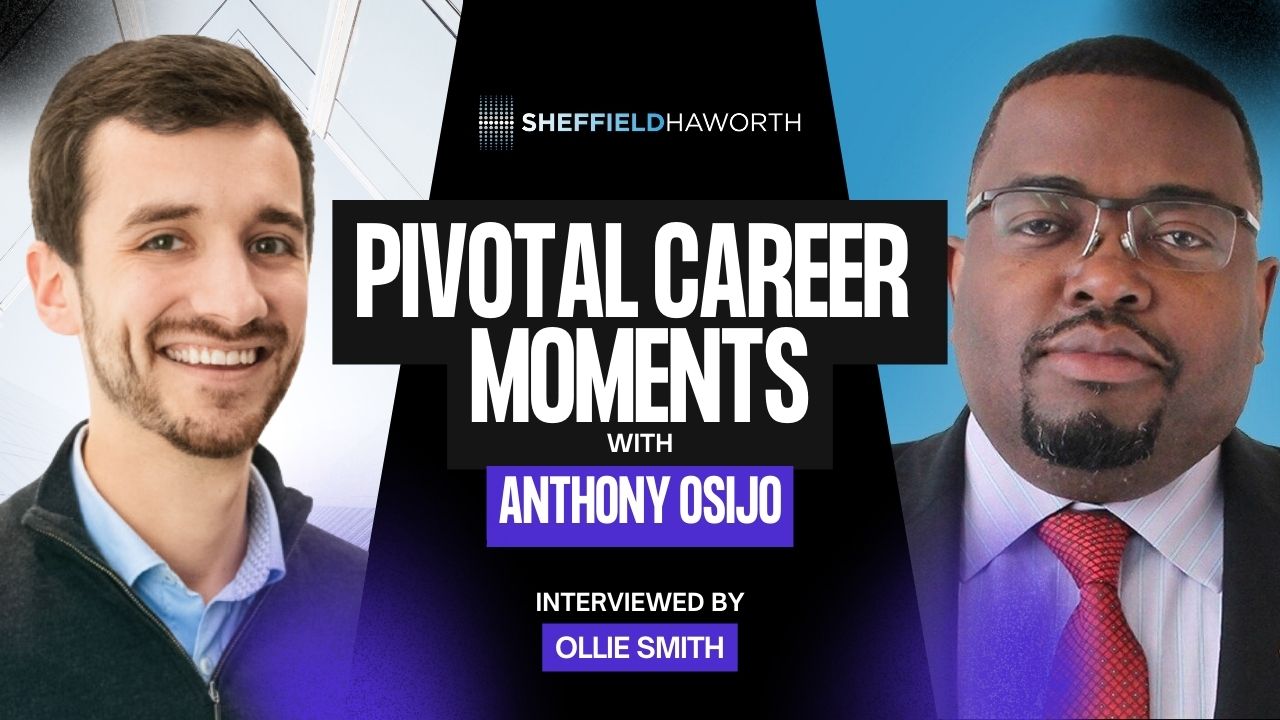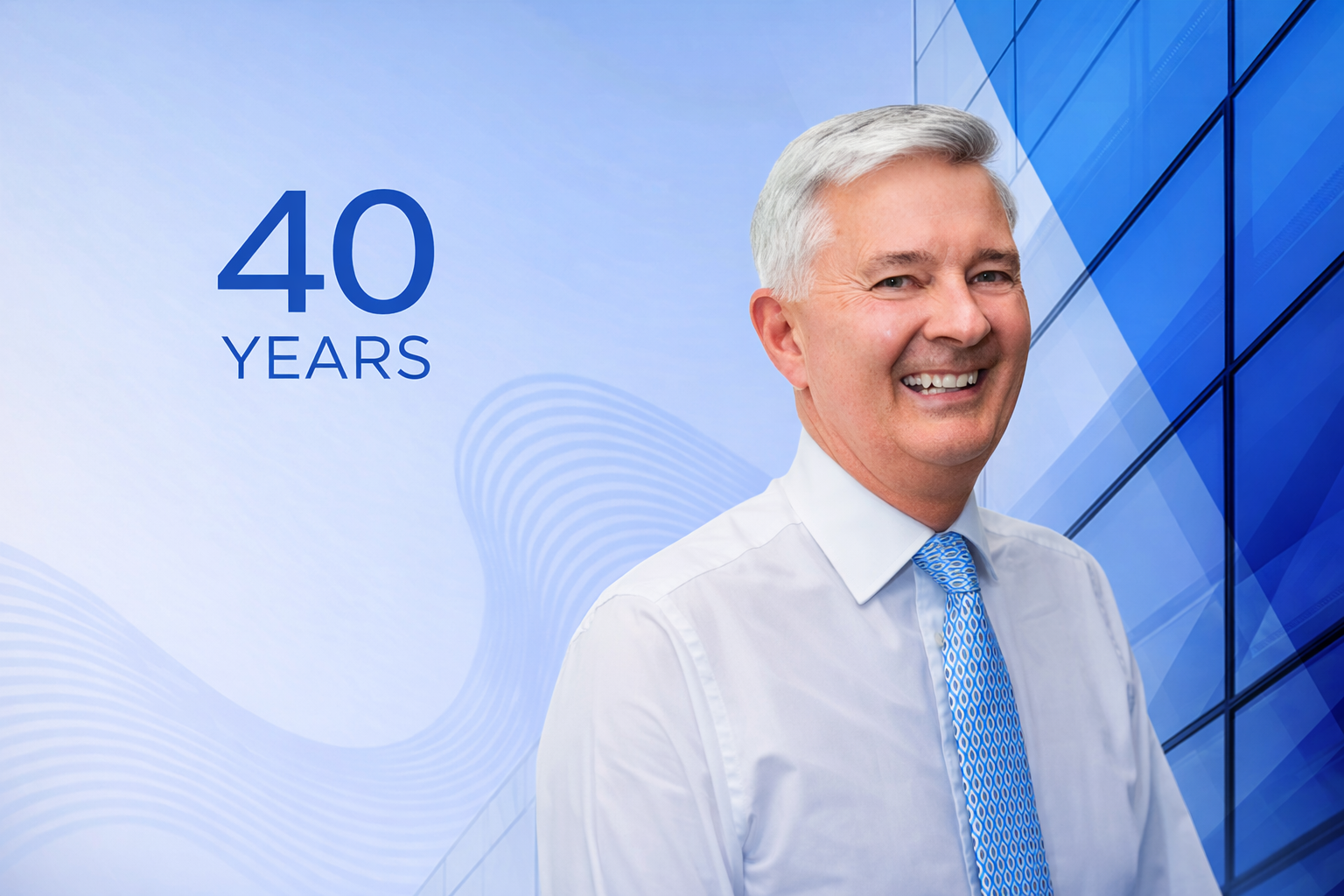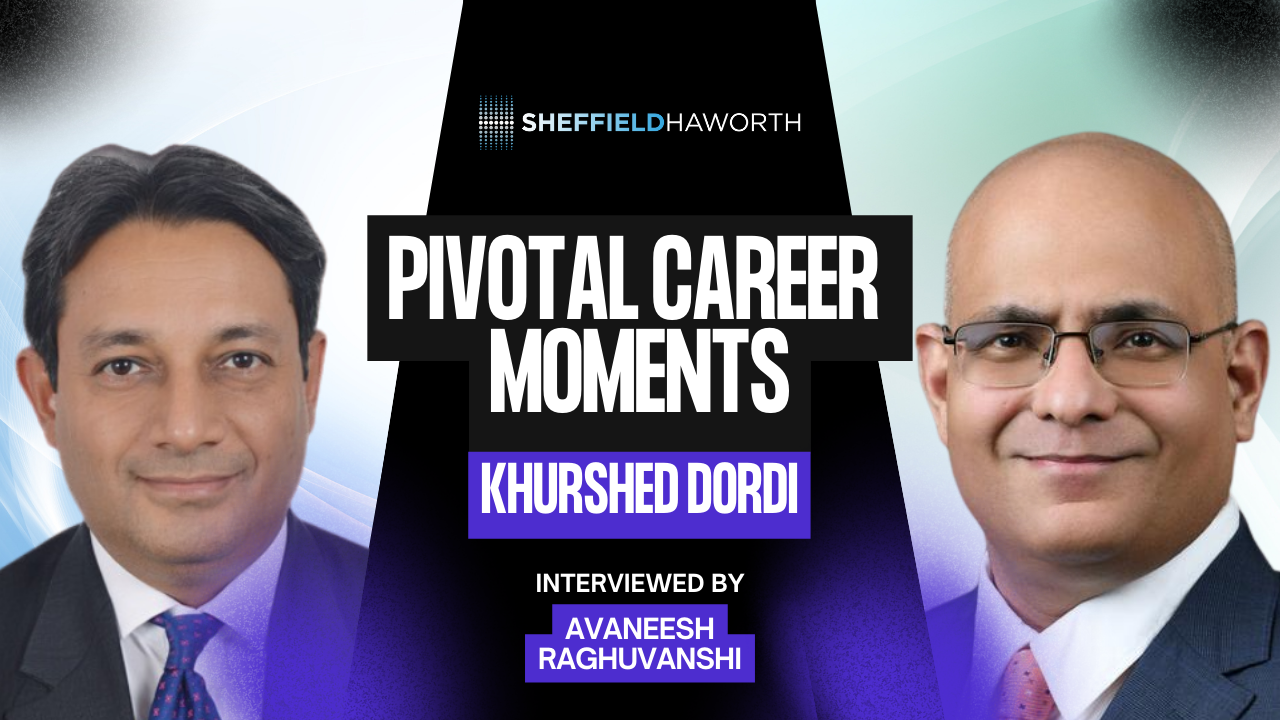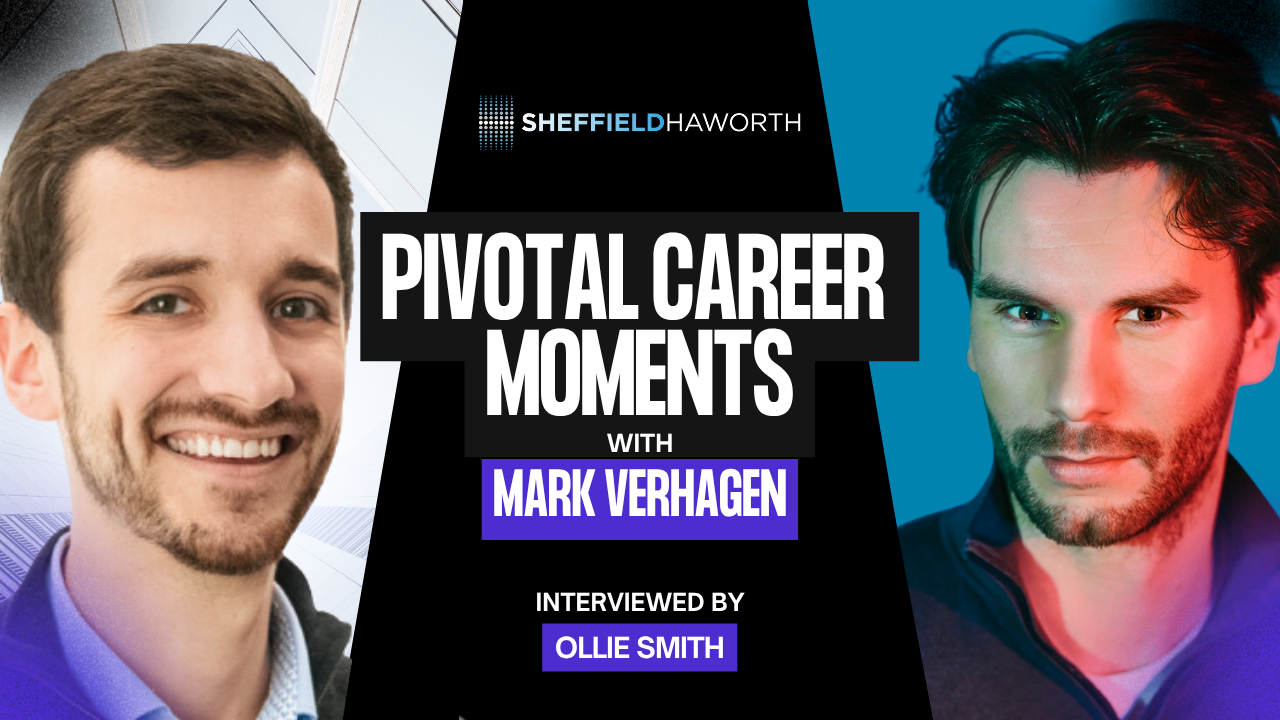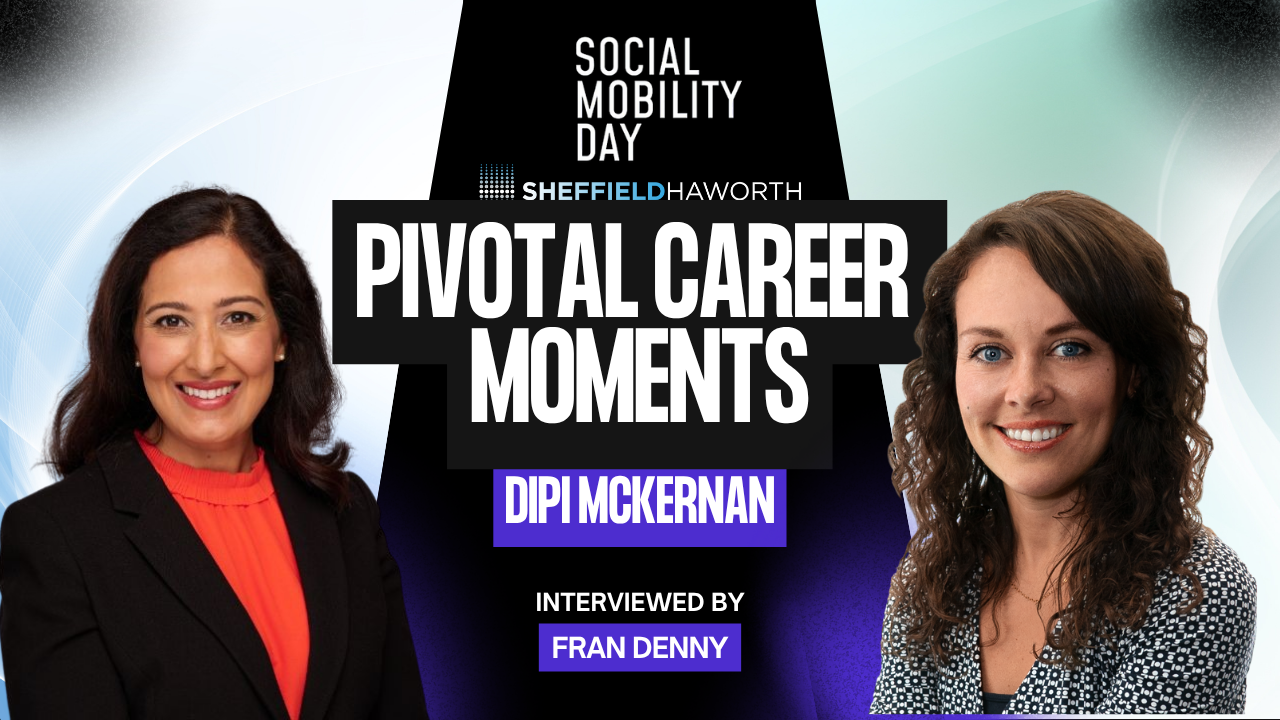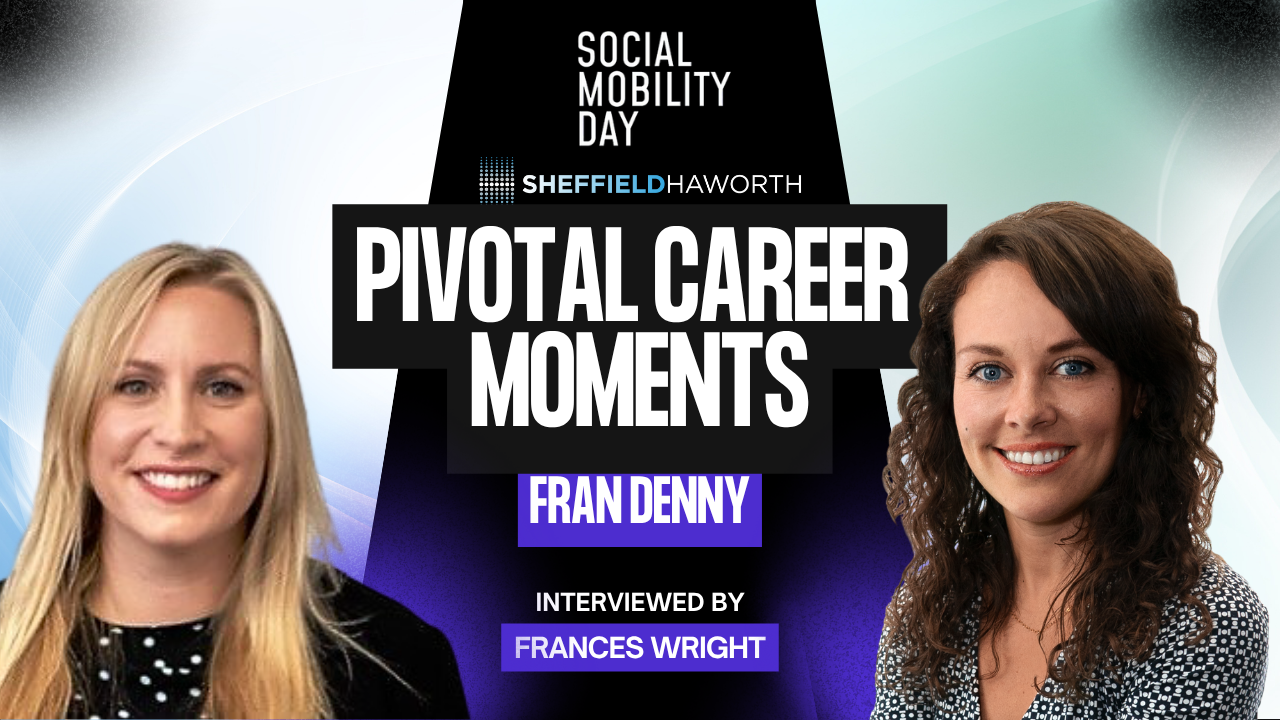As part of Sheffield Haworth’s “Pivotal Career Moments” series, we speak with senior leaders whose career journeys reflect not only professional progression but also personal transformation and meaningful impact. This edition features Anthony Osijo, Group CEO at Bboxx, a platform that is helping to transform lives across Africa by delivering access to essential services like clean energy, smartphones, clean cooking, and e-mobility.
Anthony speaks candidly about the challenges of doing business in emerging markets, his approach to leadership, and why financial discipline is just as important as purpose.
Ollie: Anthony, let’s start with Bboxx. What is the mission and how are you helping address energy poverty?
Anthony: Bboxx was founded by three Imperial College graduates about 14 years ago. They saw the huge gap in energy access – particularly in Africa and Southeast Asia – and believed technology could help bridge it. In Africa alone, over 600 million people don’t have access to energy in the way we define it in the West.
We use solar energy – something Africa has in abundance – combined with mobile technology and innovative financing like PAYGO, to provide decentralised power. This allows households to access energy without the need for a costly grid. Over the years, we’ve impacted more than 2 million lives and sold to over 660,000 households.
“You can’t address energy poverty the same way we built infrastructure in Europe. It has to be different – leaner, smarter, tech-enabled.”
Ollie: What sort of products are you offering – and are they scalable to meet larger needs?
Anthony: We offer everything from small three-bulb installations to genset replacements that power TVs, air conditioners, and fridges. The solar panel is typically placed on the roof, and the power is stored in our battery unit – which is actually how Bboxx got its name: battery box.
But it’s not just about the hardware. It’s about affordability. In communities where people earn $3 a day, a $300 TV isn’t feasible – that’s 100 days of wages. But when you offer a payment plan over three years, it becomes $0.30 a day – which is much more manageable.
Ollie: That financing approach seems pivotal. How did that develop?
Anthony: The innovation wasn’t just solar – it was how we structured the business. From using mobile money platforms to manage payments, to partnering with DFIs and governments. Over time, we also learned some hard lessons.
There was a romanticism around impact. People focused on “doing good” but forgot the fundamentals. Businesses – even impact ones – must be financially sustainable. A lot of companies in our space took on too much debt, and when repayments came due, they struggled. We had those moments too, but we learned early.
“Doing good is important. But doing sustainable good, where you actually make money, is even more important.”
Ollie: And how do governments fit into this?
Anthony: Energy poverty is a societal issue – not just a private enterprise one. You need government involvement. We’ve worked closely with the governments of Togo, Rwanda, and Nigeria who understand that grid solutions aren’t feasible for many communities.
In Rwanda, it costs around $10,000 to connect a single household to the grid. A solar installation? Closer to $500. Governments realise that decentralised solutions like ours can do more, faster, and for less.
Ollie: You also mentioned education – that this is more than just product delivery?
Anthony: Yes, you can’t drop off a solar unit and leave. In these markets, people often haven’t been exposed to structured finance, warranties, or customer service in the way we know it. We’ve had to build out last-mile distribution, train 3,000+ agents across 10 countries, and even educate customers about paying in instalments.
It’s about building an ecosystem. That includes repair centres, aftercare, insurance-like models, and digital infrastructure. Our systems have SIM cards, so we can do remote diagnostics, and agents manage installations and support through apps.
Ollie: Speaking of digital tools – you’ve just launched a generative AI initiative. Tell us a bit more about that.
Anthony: We’ve partnered with AWS to integrate generative AI into our customer service operations. It helps us be more predictive, more efficient, and deliver a better customer experience. If we can cut average call handling time, improve accuracy, and reduce frustration, that’s a win – for the business and the customer.
“Generative AI helps us predict problems and resolve them quickly – not just react. It’s about smarter service and a better experience.”
Ollie: With such a wide footprint, where do you go next?
Anthony: We’re narrowing our geographic focus from 10 countries to 6 and honing in on four key product lines: solar home systems, e-mobility, clean cooking, and smartphones. We’ve found that going deeper rather than wider delivers more value.
I also want to embed a profit-conscious culture. For a long time, we were focused on growth and impact – which was great – but now we need discipline. Everything we do must deliver value. That doesn’t mean giving up on our mission – it means strengthening it.
“Good work doesn’t mean losing money. Profit lets you scale your impact.”
Ollie: Reflecting on your career so far, what were your pivotal moments?
Anthony: I’ve had many. Becoming CFO at Bboxx was a shift – I moved from investment banking into a mission-driven business. Later, stepping up as CEO wasn’t planned, but the Board asked me to lead the next stage of our evolution. It’s been about transitioning from startup to SME and preparing for scale.
“You’ve got to hold on to entrepreneurial zeal – but also build structure, discipline, and leadership.”
Ollie: Is there anything you’d do differently?
Anthony: Probably push for focus earlier. We liked new things – too much sometimes. But financial discipline and clarity of purpose are vital. Also, I’ve learned that culture matters. And the culture we’re building now is one where impact and profitability aren’t at odds – they go hand in hand.
Anthony’s career reflects the very essence of our “Pivotal Career Moments” series – a journey shaped by conviction, agility, and the constant balance between ambition and impact. From navigating the challenges of scaling in emerging markets to driving sustainable access to energy, Anthony offers a powerful reminder: purpose-led companies must still operate with commercial clarity if they are to endure and thrive.
“People don’t like talking about money. But if you want to change the world, you need the resources to do it.”
If you enjoyed this interview, you may also like:
Pivotal Career Moments with Ian Temperton, CEO at Plastic Energy
Pivotal Career Moments with Jørgen Festervoll, CEO of Heimdall Power
Stay tuned for more in the series as we continue to explore the pivotal moments that shape remarkable careers.
